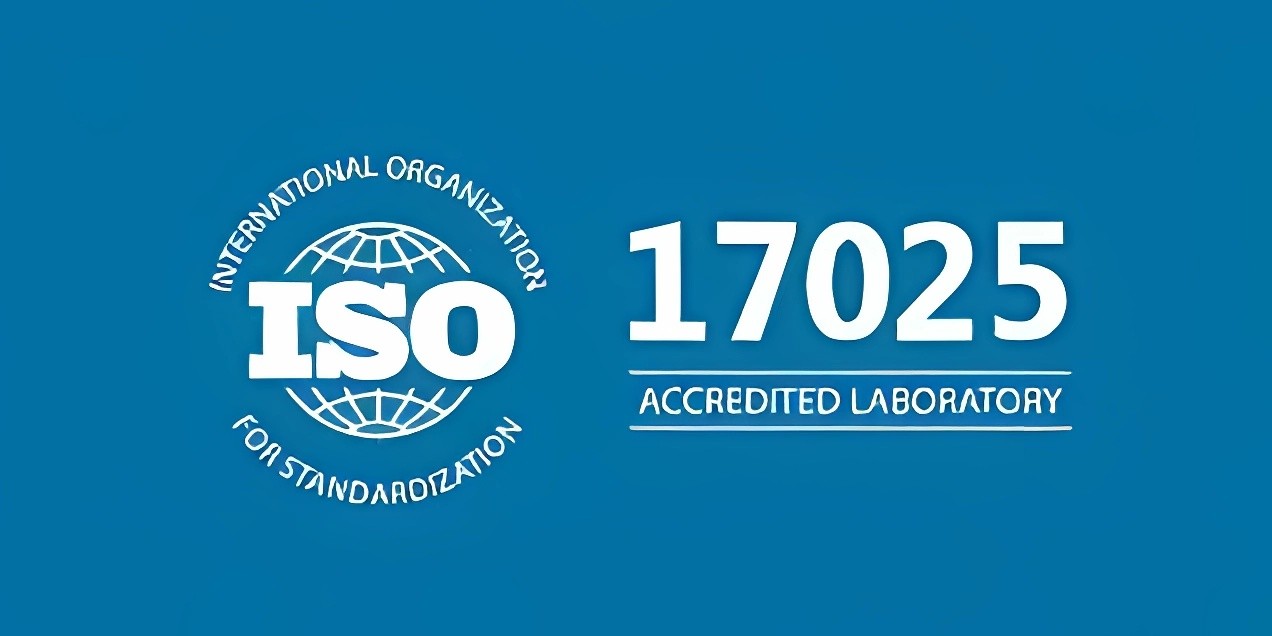Quality Assurance Reinvented: Dive into ISO 17025 Training
- 1 Importance of Quality Assurance in Laboratories
- 2 Understanding ISO 17025
- 2.1 What is ISO 17025?
- 2.2 Key Principles and Requirements
- 2.3 Benefits of Compliance Beyond Accreditation
- 3 Mastering ISO 17025: Essential Training Insights
- 3.1 Who Should Undergo ISO 17025 Training?
- 3.2 Types of Training Available
- 3.3 Curriculum Overview: Topics Covered
- 4 Implementing ISO 17025 Standards: A Roadmap to Excellence
- 4.1 Steps to Prepare for ISO 17025 Compliance
- 4.2 Developing a Quality Management System (QMS)
- 4.3 Practical Tips for Successful Implementation
- 5 Sustaining ISO 17025 Compliance: Strategies for Success
- 5.1 Importance of Ongoing Training and Education
- 5.2 Conducting Internal Audits and Reviews
- 5.3 Addressing Non-Conformities and Continual Improvement
- 6 Conclusion
ISO 17025 standards serve as the backbone of quality assurance in laboratories worldwide. These internationally recognized benchmarks outline the requirements for the competence of testing and calibration laboratories, ensuring that they operate with precision and produce accurate results. Developed by the International Organization for Standardization (ISO), ISO 17025. Compliance with these standards enhances laboratories’ credibility, fostering trust among stakeholders.
Importance of Quality Assurance in Laboratories
Quality assurance is the cornerstone of laboratory operations, guaranteeing the reliability and validity of test results. In today’s dynamic and demanding industries, where precision is paramount, laboratories play a pivotal role in safeguarding public health, environmental safety, and product quality. Effective quality assurance measures encompass various activities, including establishing robust management systems. By prioritizing quality assurance, laboratories can mitigate risks and ensure compliance with regulatory requirements.
Purpose of ISO 17025 Training
ISO 17025 training catalyzes excellence within laboratories, equipping personnel with the knowledge, skills, and competencies needed to uphold the standards’ principles effectively. This specialized training covers various topics, including quality management systems, documentation protocols, measurement uncertainty, and proficiency testing. By familiarizing participants with the intricacies of ISO 17025, training programs empower them to implement best practices. Moreover, ISO 17025 training fosters a culture of quality within laboratories. Ultimately, laboratories can improve performance by investing in ISO 17025 training, bolstering client confidence, and demonstrating.
Understanding ISO 17025

What is ISO 17025?
ISO 17025 is the gold standard for testing and calibration laboratories globally, ensuring they operate precisely and competently. This internationally recognized accreditation outlines meticulous criteria for laboratories to consistently demonstrate their capability to generate valid resultsCompliance with ISO 17025 consistently signifies a commitment to excellence, instilling confidence in the accuracy and reliability of laboratory services.
Key Principles and Requirements
At its core, ISO 17025 is guided by several fundamental principles and requirements to foster quality assurance. These include establishing a robust quality management system, ensuring the competence of personnel, maintaining traceability of measurements, and validating methods to ensure accuracy and precision. By adhering to these principles, laboratories can enhance their credibility, meet regulatory requirements, and deliver results that stakeholders can trust.
Benefits of Compliance Beyond Accreditation
While ISO 17025 accreditation is a hallmark of quality, its benefits extend far beyond mere compliance. Laboratories that adhere to ISO 17025 standards experience improved operational efficiency, enhanced customer satisfaction, and reduced risk of errors. Additionally, compliance with ISO 17025 demonstrates a commitment to continual improvement, driving innovation and excellence in laboratory practices. Furthermore, ISO 17025 accreditation opens new opportunities, including expanded market reach.
Mastering ISO 17025: Essential Training Insights
Who Should Undergo ISO 17025 Training?
ISO 17025 training is indispensable for personnel working in testing and calibration laboratories, including laboratory managers, technical staff, quality assurance professionals, and support personnel. By equipping individuals at all levels with the necessary knowledge and skills, ISO 17025 training ensures that laboratories operate with precision, competence, and compliance.
Types of Training Available
ISO 17025 training has various formats to accommodate diverse learning preferences and schedules. Options include online courses, in-person workshops, seminars, and customized training programs tailored to organizational needs. Whether individuals prefer self-paced online modules or interactive face-to-face sessions, training options are available to suit every learning style and requirement.
Curriculum Overview: Topics Covered
ISO 17025 training programs cover a comprehensive range of topics designed to provide participants with a thorough understanding of the standard and its practical application. Key focus areas include quality management systems, documentation and record-keeping, measurement uncertainty, traceability, proficiency testing, internal auditing, and corrective action procedures. By addressing these topics comprehensively, ISO 17025 training ensures participants are well-equipped to implement best practices.
Implementing ISO 17025 Standards: A Roadmap to Excellence
Steps to Prepare for ISO 17025 Compliance
Preparing for ISO 17025 compliance requires a systematic approach to ensure that laboratories meet the standard’s stringent requirements. Key steps include conducting a gap analysis to identify areas of non-compliance, establishing a project team to oversee implementation, developing a timeline and budget, and allocating resources effectively. By carefully planning and executing these steps, laboratories can lay a solid foundation for achieving ISO 17025 accreditation.
Developing a Quality Management System (QMS)
Central to ISO 17025 compliance is developing a robust quality management system (QMS) tailored to the specific needs and processes of the laboratory. This entails defining quality objectives, documenting procedures, establishing document control mechanisms, and implementing monitoring and measuring performance processes. A well-designed QMS not only ensures compliance with ISO 17025 but also fosters.
Practical Tips for Successful Implementation
Successful implementation of ISO 17025 requires careful attention to detail and adherence to best practices. Practical tips include fostering leadership commitment and engagement, providing training and resources to staff, involving stakeholders in the process, conducting regular internal audits to identify areas for improvement, and seeking feedback from customers and external stakeholders. By following these tips, laboratories can streamline the implementation process and maximize the benefits of ISO 17025 accreditation.
Sustaining ISO 17025 Compliance: Strategies for Success
Importance of Ongoing Training and Education
Ongoing training and education are essential for maintaining ISO 17025 compliance and ensuring that laboratory personnel stay abreast of the latest developments and best practices. By investing in continuous learning opportunities, laboratories can enhance the skills and competencies of their staff and address knowledge gaps. Additionally, ongoing training fosters a culture of constant improvement.
Conducting Internal Audits and Reviews
Regular internal audits and reviews are indispensable tools for assessing the effectiveness of quality management systems and identifying areas for improvement. By conducting thorough audits at scheduled intervals, laboratories can evaluate their adherence to ISO 17025 requirements, identify non-conformities, and implement corrective actions to address deficiencies. Internal audits also provide opportunities for staff to share feedback, exchange best practices, and collaborate on solutions.
Addressing Non-Conformities and Continual Improvement
Addressing non-conformities and striving for continual improvement are fundamental principles of ISO 17025 compliance. When non-conformities are identified through internal audits or other means, it is essential to take prompt and effective corrective actions to prevent recurrence and mitigate risks. Additionally, laboratories should embrace a culture of continual improvement, where staff are encouraged. By fostering a proactive approach to addressing non-conformities and driving continual improvement.
Conclusion
Throughout this article, we’ve delved into the significance of ISO 17025 training in ensuring laboratory services’ quality, accuracy, and reliability. From understanding the fundamentals of ISO 17025 standards to implementing best practices for compliance, we’ve explored the essential steps laboratories must take to uphold excellence in their operations.
ISO 17025 training is not merely a requirement for accreditation but a catalyst for continual improvement and innovation within laboratories. By investing in training and education, laboratories can empower their personnel to embrace quality assurance principles, adhere to best practices, and drive excellence in testing and calibration services. ISO 17025 training is not just about meeting regulatory requirements—it’s about elevating standards.

















